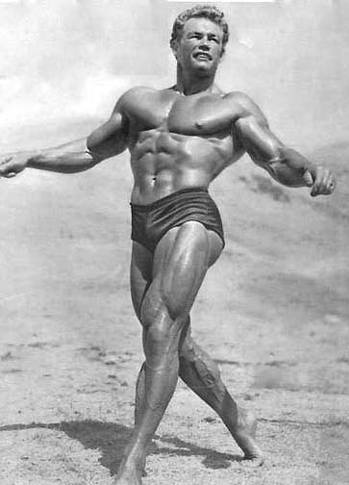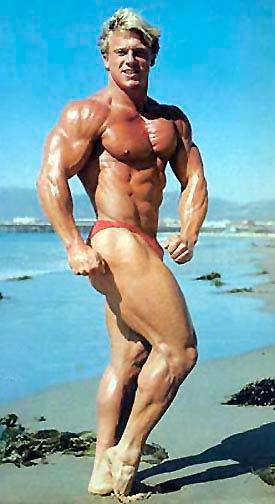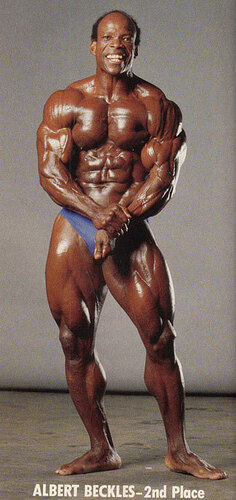search Dr. Berardi’s precision nutrition site for an article he posted on 2.28.08 - entitled Soy - What’s The Big Deal? written by ryan andrews. i’ve since revised my thinking on soy products.
excerpts:
"Another expert many of you may know, Cassandra Forsythe, PhD(c), author of the Perfect Body Diet, recently shared her thoughts as well.
Although she used to have the belief that soy, and all soy-related products, were detrimental to health and the achievement of an ideal body composition, she’s revised her position.
She now feels that occasional soy protein consumption may not have such effects. Forsythe has also indicated that manufactured soy protein may have different effects than traditional soy foods, such as whole bean edamame."
"Finally, a Romanian study using Olympic athletes supplemented participants with soy protein (1.5 g/kg) for 8 weeks. In the end, the authors found that the soy protein supplementation led to increased body mass (~ 3 kg, mostly from lean body mass) and strength indexes.
Significant decreases of fatigue were found after training sessions. No negative side effects or abnormal changes to metabolism were noticed and the product was well tolerated.
Now, before we move on, we want to be clear about one major, important thing. This section isn’t designed to promote soy protein supplementation. Not in the least.
However, it is here to demonstrate that when used as part of a sensible training program and varied, calorie sufficient diet, soy protein supplementation acts much in the same way that other protein supplements might act - with increases in lean body mass, decreases in stress hormone responses to training, and improvements in performance."
"So let’s get real here…it’s unlikely that testosterone problems would occur if someone were to eat a moderate amount of whole food soy products.
Indeed, a more traditional daily intake of soy for someone may look more like this:
8 ounces of tofu = 53 mg
½ cup soy milk = 15 mg
½ cup edamame = 12 mg
Total = 80 mg of PEs"
"The point?
Well, it’s odd that soy is getting hammered for hormonal implications when, indeed, many of our dietary staples (alcohol, milk, and meat) all might also have an impact on our hormonal levels if we’re not conscientious about ensuring adequate exercise and a varied diet."
"…we do caution against excessive soy intake. When consumption of soy foods is excessive, there might be some negative effects going on.
To this end, it seems best to avoid isolated and highly refined forms of soy on a regular basis. In other words, things like soy isolates, soy concentrates, textured soy protein, etc should be minimized in the diet.
Whole soybeans, soy milks, tofu, tempeh, and miso, on the other hand, are better options.
In terms of total intake, we’d say 1-2 servings of soy per day seems to be a safe and potentially healthy intake, but exceeding three servings per day on a regular basis may not be a good idea.
(A serving is 1 cup of soy milk and 4 ounces of tofu/tempeh/soybeans.)
Now, it�??s easy to understand how some individuals can consume excessive amounts of soy. Soy milk on the morning cereal, a soy protein smoothie for a snack, a soy burger at lunch, soy pretzels as a snack, and soy ice cream for dessert. Even a soy novice would recognize that to be soy overload.
So don’t make the mistake of eating tons of soy - even if you’re on a plant based diet.
Watch out for food pushers
While excessive soy consumption gets a bad rap, we often think about the excessive consumption of any one food and the potential negative effects.
As we presented in this article, what about the high intake of alcohol? Or factory farmed dairy and meat?
Soy is a chief ingredient in the feed of factory farmed animals. Does this indirectly influence the nutrition of meat-eaters? Should they only purchase grass-fed animals?
We hesitate to think that any �??mono-food�?? excess is a good idea on a regular basis.
And, of course, the soy industry does it’s part (just like the dairy, egg and beef food pushing industries) to create just that - a mono-food culture. They push soy by overstating the benefits and undermining the concerns. "
"This rule of thumb is also true with soy. Whole, unprocessed soy, is just a food. It’s not a political agenda. It’s not a public health crisis. It’s not a way of life. It’s not a medicine. And it’s not a panacea.
It’s ONE food - one of a few thousand foods people can include in their diets…or not. It’s nothing more.
So, as the title of this article hints at, we want people to re-freakin’-lax when it comes to soy. Moderate doses of whole-food soy proteins really are no big deal."


